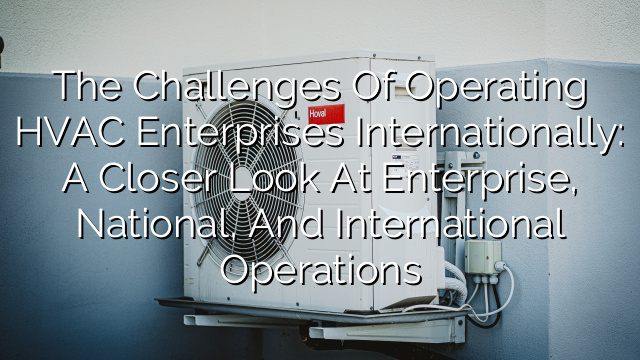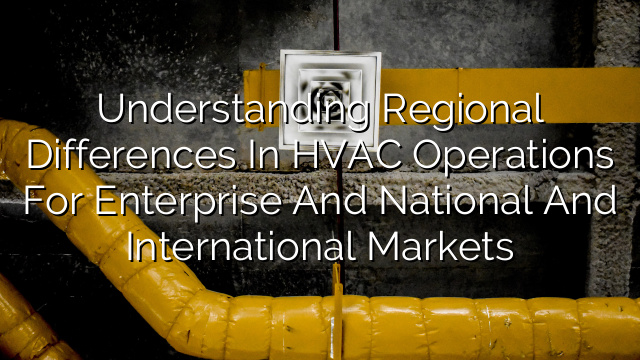Navigating the Complexities of International Operations for Enterprises: A Guide
Global expansion is a major step for any enterprise, one that comes with numerous challenges and opportunities. When you venture into international operations, the complexity of your business multiplies exponentially. This guide will simplistically but comprehensively help enterprises understand and navigate the multifaceted aspects of operating on a global scale, ensuring that their international journey is not just successful, but also strategically advantageous.
Understanding International Business Environment
- Legal and Regulatory Frameworks: Each country has unique legal situations. Enterprises must be aware of and comply with local laws such as labor, trade, and corporate regulations.
- Economic Factors: Keeping abreast with the economic trends, inflation rates, and currency exchange is vital for financial planning and pricing strategies.
- Socio-cultural Differences: Understanding the cultural nuances can contribute significantly to market acceptance and can impact marketing strategy, product adaptation, and customer service.
- Political Climate: Political stability is paramount for business operations. The potential impact of political changes needs to be factored into risk management.
Strategic Planning for International Operations
Strategic planning involves comprehensive research and thorough readiness. Addressing the following points is essential for a successful international strategy:
- Market Research: In-depth analysis of the target market, including demand forecasting, competitor analysis, and identification of customer needs, is crucial.
- Entry Strategy: Deciding whether to enter through exports, joint ventures, franchising, or a wholly-owned subsidiary will make a big difference in your level of investment and control.
- Supply Chain Management: Developing a robust supply chain that can handle international logistics, customs, and foreign trade regulations is key.
- Localization: Tailoring products and services to local preferences, languages, and legal requirements will make the business more competitive.
- Risk Management: Enterprises must plan for the various risks associated with international operations, including currency fluctuations and political instability.
Human Resource Management in International Operations
The human element cannot be overlooked in global business. Enterprises must balance between local hiring and expatriate staff:
- Cultural Awareness: Training staff for cultural competence is essential to avoid misunderstandings and to build a cohesive team.
- Talent Acquisition: Understanding local labor laws and hiring practices is necessary for recruiting and retaining the right talent.
- Compensation and Benefits: Structuring competitive and compliant compensation packages is a delicate process, especially when considering multiple currencies and tax systems.
International Marketing and Customer Experience
- Brand Consistency and Adaptation: Balancing brand consistency with local adaptation is key for a successful international presence.
- Product Positioning and Pricing: Products and services may need repositioning in different markets, and pricing strategies must account for local economic conditions.
- Customer Support: Providing accessible and culturally relevant customer support will significantly affect customer satisfaction and loyalty.
Financial Management in International Contexts
Financial complexity increases with international operations. Key areas to manage include:
- Foreign Exchange Risk Management: Implement measures to protect the business from significant foreign exchange movements.
- Accounting and Tax Compliance: Complying with international accounting standards and tax obligations is non-negotiable.
- Funding and Capital Allocation: Deciding how to fund international operations and allocate capital requires careful planning to optimize returns.
Technology and Infrastructure
Technology plays a critical role in managing international operations. Businesses must:
- Invest in Global IT Systems: Robust IT systems that can handle different languages, currencies, and regulatory requirements are necessary for efficiency.
- Ensure Reliable Connectivity: Staying connected with teams across different time zones is crucial for communication and decision-making.
- Adapt to Local Infrastructures: Be aware that infrastructure quality can vary widely between regions and countries.
Legal Compliance and Ethics
Compliance and ethical conduct are the bedrock of international operations. Enterprises must:
- Maintain High Ethical Standards: Uphold your business’s integrity and standards across all international markets.
- Understand Anti-corruption Laws: Familiarize yourself with and adhere to the Foreign Corrupt Practices Act (FCPA) and similar laws in other jurisdictions.
- Comply With Trade Regulations: Stay up-to-date with export, import, and trade compliance regulations to avoid costly legal issues.
So What’s Next?
Navigating the complexities of international operations requires a multi-faceted approach, constant vigilance, and a blend of strategic planning. However, with the right resources and mentality, your enterprise can thrive in the global market.
FAQ Section
- What are the first steps an enterprise should take when considering international operations?
The first steps include conducting in-depth market research, evaluating entry strategy options, and understanding the legal and regulatory frameworks of the target markets.
- How can enterprises handle cultural differences in international operations?
Enterprises can handle cultural differences by investing in cultural training for their employees, hiring local experts, and tailoring their marketing and product offerings to the local customs and preferences.
- What are some common financial challenges businesses face in international operations?
Common challenges include managing currency exchange risks, complying with various tax jurisdictions, and funding and capital allocation for different markets.
- Why is technology important in managing international operations?
Technology is crucial for efficient management of operations, ensuring compliance across different regions, and facilitating communication and decision-making across time zones.
- How can enterprises ensure legal and ethical compliance in foreign markets?
Enterprises can ensure compliance by staying informed about local laws and international regulations such as the FCPA, providing training on anti-corruption laws, and maintaining strict ethical standards.








